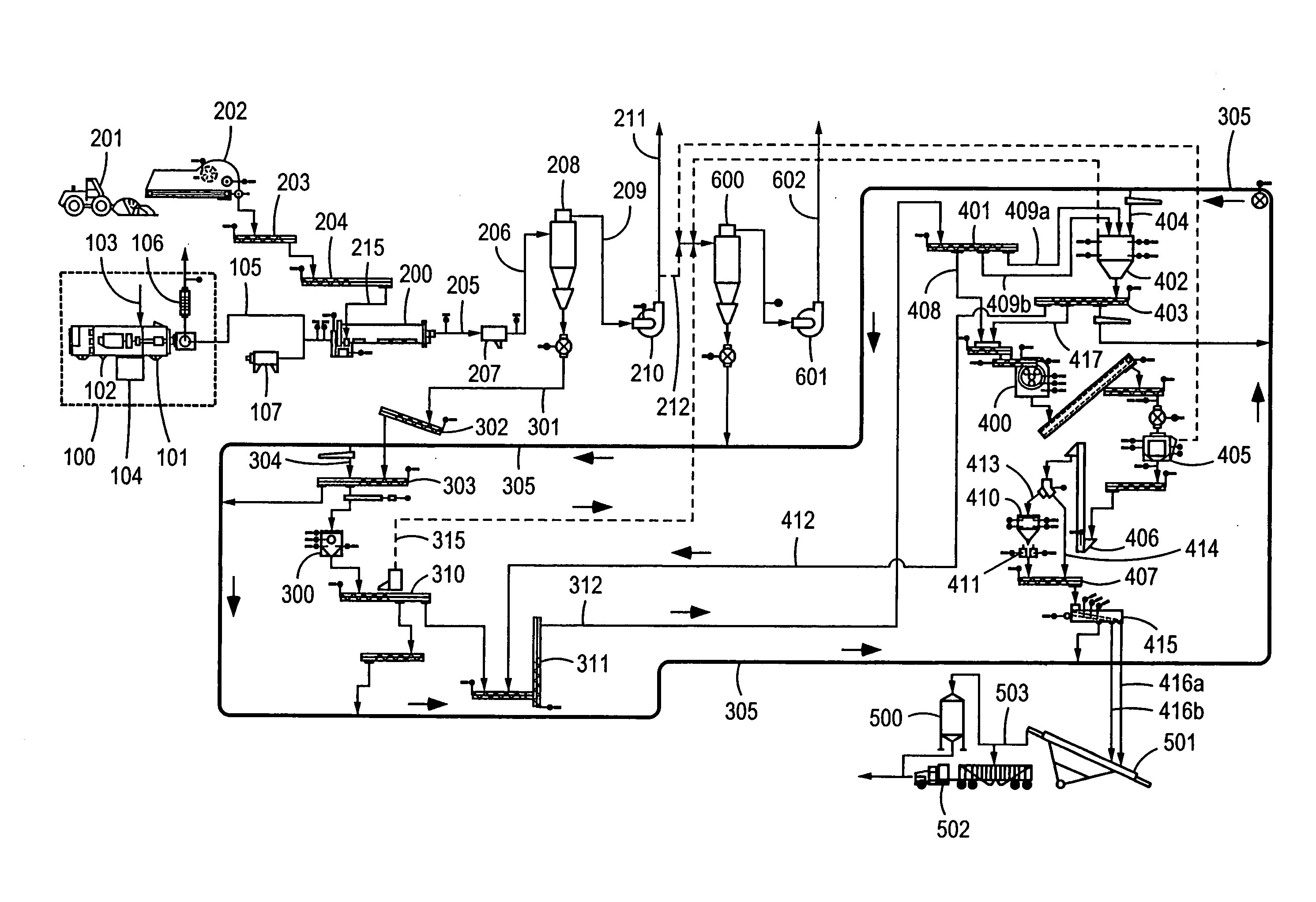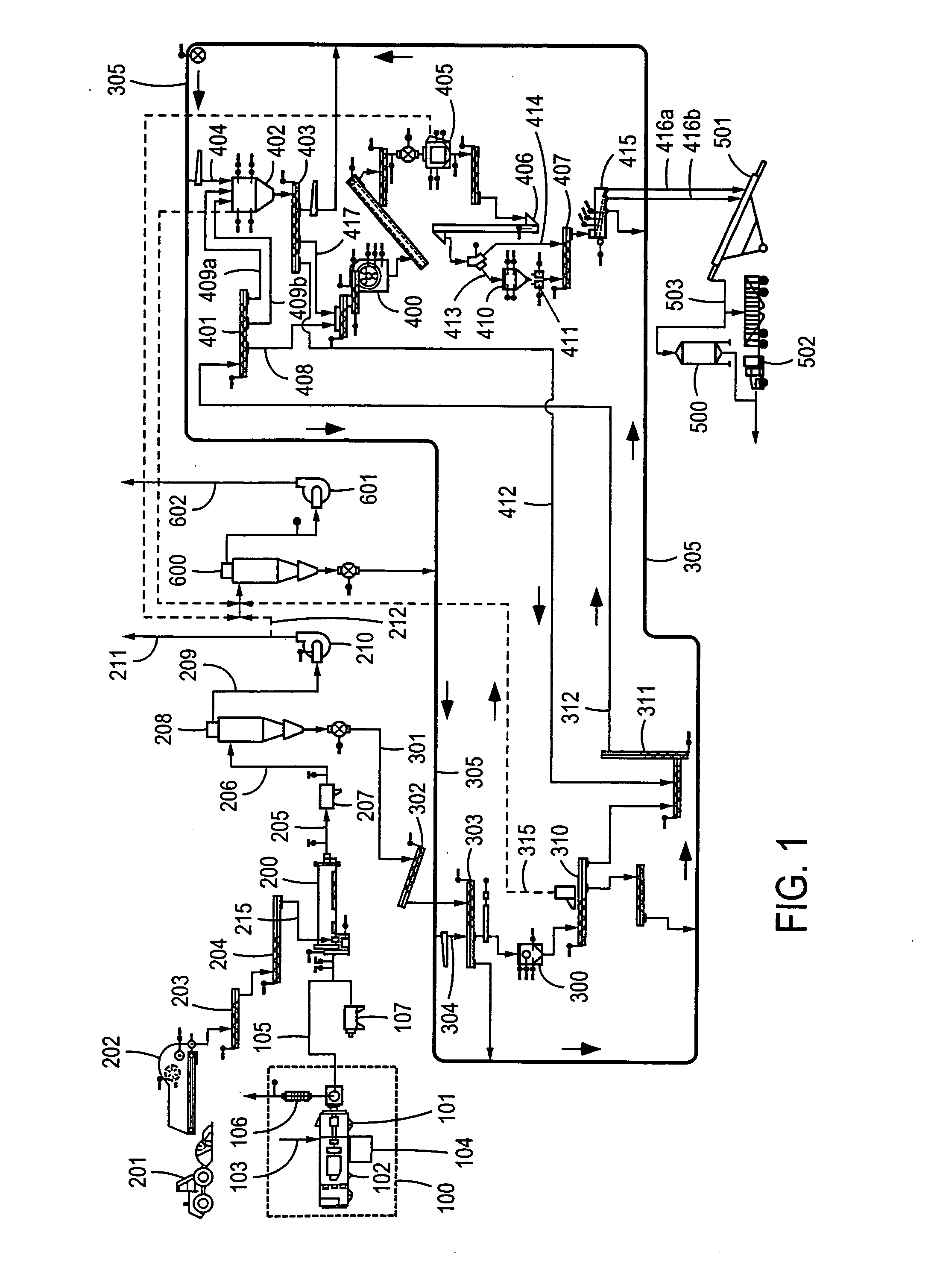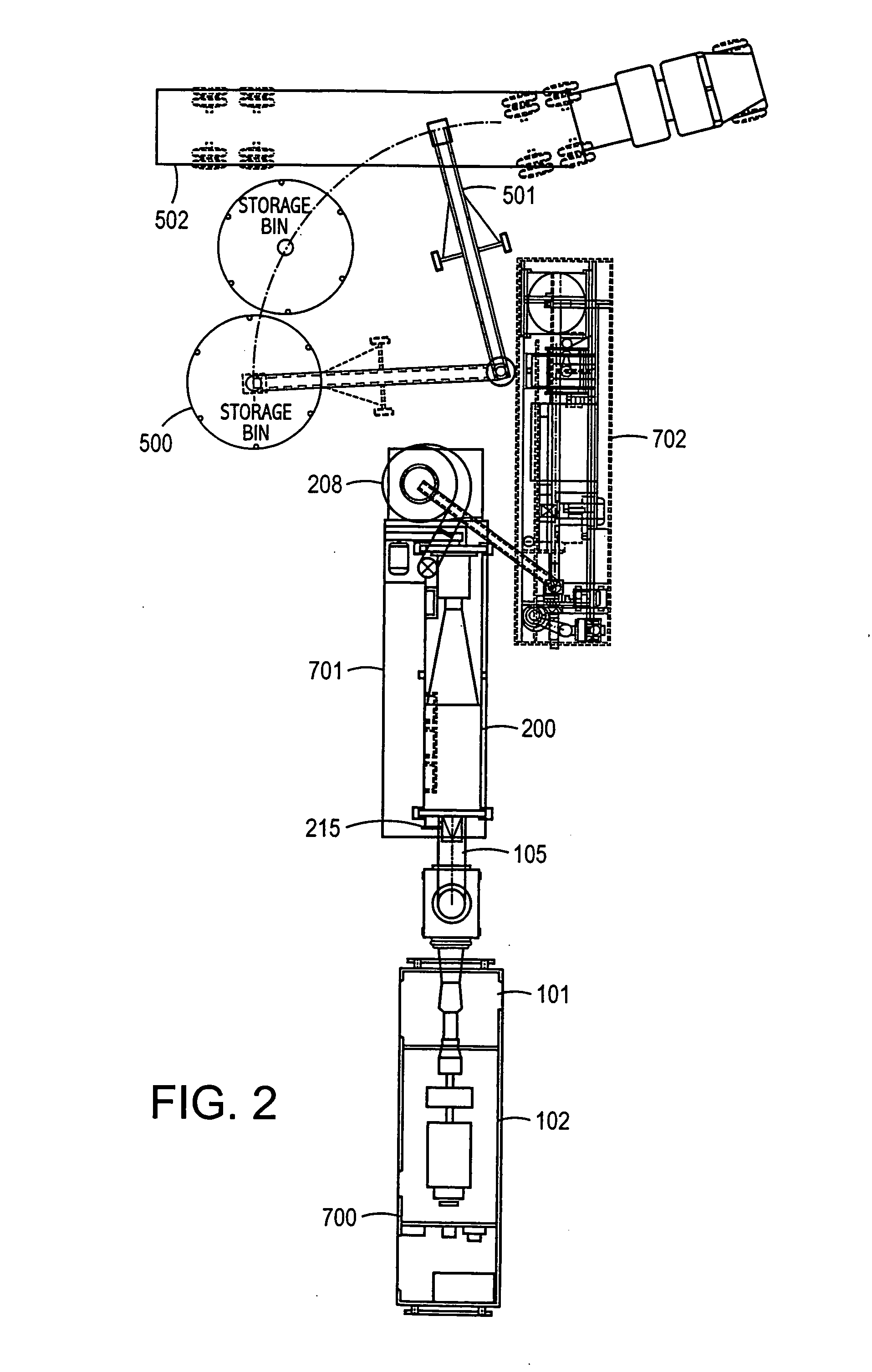Process and apparatus for manufacture of fertilizer products from manure and sewage
a technology of manure and sewage, which is applied in the direction of drying solid materials, drying machines, machines/engines, etc., can solve the problems of serious lagged development of the technology for treating waste materials from these facilities, difficult to handle and dispose of manure economically, and significant cost to animal feeding operations
- Summary
- Abstract
- Description
- Claims
- Application Information
AI Technical Summary
Benefits of technology
Problems solved by technology
Method used
Image
Examples
Embodiment Construction
[0101] This invention provides an economical, efficient and simplified solution to the increasingly severe problem of environmental pollution caused by manure and gases from livestock operations and by sewage from municipalities. Prior art methods and systems provided to date either are not sufficiently effective in conversion of such manure and gases to a safe, environmentally acceptable form or are not adaptable to be economically feasible for small as well as large commercial operations. Other problems exist with many of the prior art systems, such as uneconomical to operate, failure to decontaminate and failure to prevent air pollution (or in fact causing additional environmental problems in the operation of the process).
[0102] Examples of the prior systems and their deficiencies include the following. Digestion processes, whether aerobic or anaerobic, are slow, inefficient and produce a sludge that must be disposed of, typically in a landfill or land spreading. Digestion or co...
PUM
 Login to View More
Login to View More Abstract
Description
Claims
Application Information
 Login to View More
Login to View More - R&D
- Intellectual Property
- Life Sciences
- Materials
- Tech Scout
- Unparalleled Data Quality
- Higher Quality Content
- 60% Fewer Hallucinations
Browse by: Latest US Patents, China's latest patents, Technical Efficacy Thesaurus, Application Domain, Technology Topic, Popular Technical Reports.
© 2025 PatSnap. All rights reserved.Legal|Privacy policy|Modern Slavery Act Transparency Statement|Sitemap|About US| Contact US: help@patsnap.com



